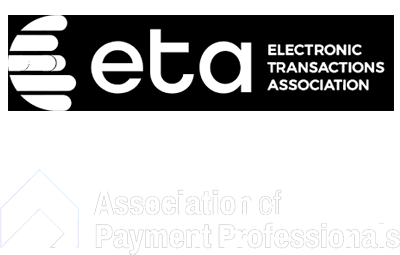12 Jan

In today’s digital age, having the ability to accept payments online is crucial for any business, especially in the healthcare industry. As medical practices and healthcare providers continue to expand their services and reach, it is essential to have a secure and reliable payment processing system in place. This is where a healthcare merchant account comes into play. In this article, we will walk you through the steps of getting a healthcare merchant account, the eligibility criteria, associated fees and costs, and how to effectively manage your account.
Understanding Healthcare Merchant Accounts
Before diving into the process of obtaining a healthcare merchant account, it’s important to understand what it actually is. A healthcare merchant account is a type of payment processing account specifically designed for healthcare providers, clinics, and medical practices. It allows you to accept credit and debit card payments from your patients securely and efficiently.
Definition of a Healthcare Merchant Account
A healthcare merchant account serves as a virtual payment gateway that connects your medical practice to the payment networks, enabling you to receive payments electronically. It acts as an intermediary between your practice and the patient’s bank, ensuring seamless money transfers.
Importance of a Healthcare Merchant Account
The importance of having a healthcare merchant account cannot be overstated. Not only does it streamline your payment processes, but it also enhances the patient experience by providing a convenient and secure way to pay for healthcare services. Additionally, it allows you to expand your revenue streams by accepting online payments, which is becoming increasingly popular among patients.
One of the key benefits of a healthcare merchant account is the ability to securely process payments. With the increasing prevalence of online fraud and data breaches, it is crucial for healthcare providers to prioritize the security of their patients’ financial information. A healthcare merchant account employs advanced encryption and security measures to protect sensitive data, ensuring that both you and your patients can have peace of mind when it comes to payment transactions.
In addition to traditional in-person payments, a healthcare merchant account also allows you to accept online payments. This is particularly beneficial in today’s digital age, where more and more patients prefer the convenience of paying for services online. By offering online payment options, you can attract a wider patient base and cater to their preferences, ultimately boosting your practice’s revenue. Using a platform like www.PayBlox will help find you the best merchant account for your healthcare business.
In conclusion, a healthcare merchant account is an essential tool for healthcare providers looking to streamline their payment processes, enhance the patient experience, and expand their revenue streams. By securely accepting credit and debit card payments, both in-person and online, you can improve efficiency, attract more patients, and ultimately grow your practice.
Eligibility Criteria for a Healthcare Merchant Account
Obtaining a healthcare merchant account involves meeting certain eligibility criteria set by payment processing providers. These criteria usually revolve around necessary business documentation and credit history requirements.
Necessary Business Documentation
When applying for a healthcare merchant account, you will need to provide specific business documentation to verify your legitimacy and compliance with industry regulations. This documentation may include your business license, tax identification number, proof of insurance, and any relevant certifications.
Let’s take a closer look at each of these required documents:
- Business License: This document serves as proof that your healthcare business is legally registered and authorized to operate. It is typically issued by the appropriate government agency or local municipality.
- Tax Identification Number: Also known as an Employer Identification Number (EIN), this unique identifier is assigned to your business by the Internal Revenue Service (IRS). It is used for tax purposes and helps ensure accurate reporting and compliance.
- Proof of Insurance: As a healthcare merchant, it is crucial to have adequate insurance coverage to protect your business, employees, and customers. Providing proof of insurance demonstrates your commitment to risk management and safeguards against potential liabilities.
- Relevant Certifications: Depending on the nature of your healthcare business, you may need to provide certifications that validate your expertise and compliance with industry standards. These certifications could include HIPAA compliance, medical licenses, or accreditations from professional organizations.
Credit History Requirements
Payment processing providers also consider your credit history when evaluating your eligibility for a healthcare merchant account. While a less-than-perfect credit score may not necessarily disqualify you, it could affect the rates and terms you are offered. It is important to maintain a healthy credit history to secure the best possible terms for your account.
Here are some factors that payment processing providers may assess when reviewing your credit history:
- Credit Score: Your credit score is a numerical representation of your creditworthiness. It is calculated based on various factors, including payment history, credit utilization, length of credit history, and types of credit used. A higher credit score indicates a lower risk to the payment processor.
- Payment History: Consistently making on-time payments for your debts and obligations demonstrates financial responsibility. Late payments, defaults, or bankruptcies can negatively impact your credit history and potentially affect your eligibility for a healthcare merchant account.
- Debt-to-Income Ratio: This ratio compares your monthly debt obligations to your monthly income. A lower debt-to-income ratio indicates a healthier financial position and may increase your chances of being approved for a healthcare merchant account.
- Public Records: Negative public records, such as tax liens or judgments, can significantly impact your credit history and make it more challenging to obtain a healthcare merchant account. It is essential to address and resolve any outstanding issues to improve your eligibility.
By understanding the necessary business documentation and credit history requirements, you can better prepare yourself when applying for a healthcare merchant account. Remember to gather all the required documents and maintain a strong credit history to increase your chances of approval and secure favorable terms for your account.
Steps to Apply for a Healthcare Merchant Account
Now that you understand the importance of a healthcare merchant account and the eligibility criteria involved, let’s explore the steps to apply for one.
Choosing the Right Provider
The first step is to research and select a reputable payment processing provider that specializes in healthcare merchant accounts from the PayBlox platform. They will match your business to payment processors who excel in the Healthcare industry.
Completing the Application Process
Once you have selected a provider via the platform, the next step is to complete the application process. This typically involves filling out an online application form where you will be required to provide information about your medical practice, your business documentation, and your credit history. Be thorough and accurate when filling out the form to ensure a smooth application process.
Fees and Costs Associated with Healthcare Merchant Accounts
It is essential to familiarize yourself with the fees and costs associated with a healthcare merchant account. While the exact fees may vary depending on the provider, there are typically setup fees and transaction fees to consider.
Transaction Fees
Transaction fees are charged for each payment made through your healthcare merchant account. These fees are usually a small percentage of the transaction amount, and they can vary depending on factors such as the type of card used and the transaction volume. It’s important to carefully review these fees and negotiate with your provider to secure the best possible rates.
Managing Your Healthcare Merchant Account
Once you have successfully obtained a healthcare merchant account, it’s important to actively manage and monitor it to ensure optimal performance.
Regular Account Monitoring
Regularly monitor your account activity to identify any discrepancies or suspicious transactions. This can help you identify and address potential issues promptly, protecting your practice and your patients’ sensitive information.
Handling Chargebacks and Disputes
In the event of a chargeback or dispute, it is crucial to handle the situation promptly and effectively. Familiarize yourself with the chargeback process and work closely with your payment processing provider to resolve any disputes in a fair and efficient manner.
In conclusion, getting a healthcare merchant account is a crucial step for healthcare providers looking to offer convenient and secure payment options to their patients. By understanding the eligibility criteria, selecting the right provider, and effectively managing your account, you can ensure a smooth and efficient payment processing experience for both your practice and your patients.






